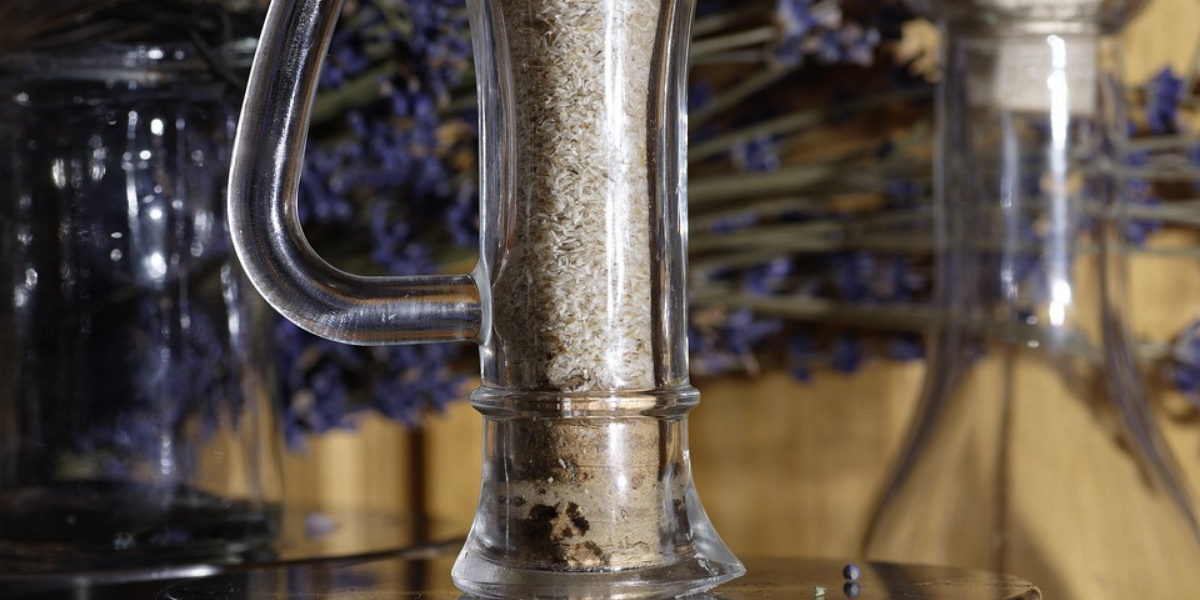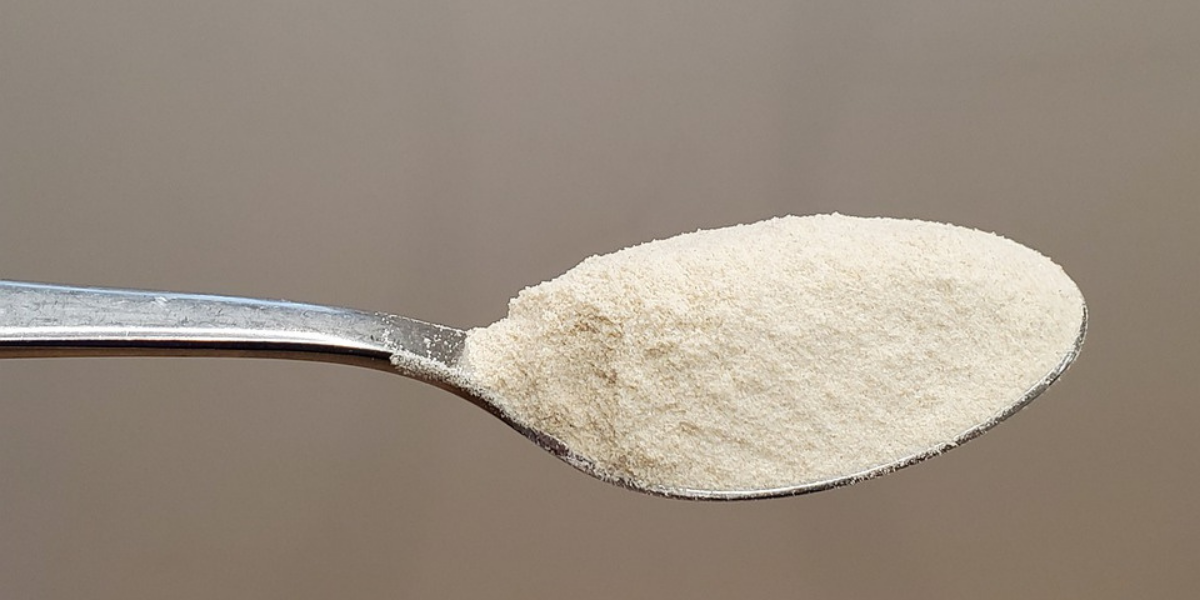Psyllium is a type of fiber that comes from the seed husks of a herb called Plantago ovata which is grown around the world but especially common in India. Up to 15000 of the tiny seeds wherein psyllium husk is derived can be harvested from a single plant. Psyllium, primarily known as a laxative, is a main ingredient in products like Metamucil and Fiberall but recent findings indicate that there are many other benefits to be gained from it. Is psyllium a prebiotic?

The origins of psyllium can be traced back to India where it had been a part of traditional Ayurvedic medicine from 5000 years ago. Evidence found in Ayurveda referred to psyllium as Asvakarna and described its uses. At present, the areas of Gujarat and Rajasthan in India is the largest producer of psyllium in the world, with approximately 60000 hectares dedicated to its cultivation.
One main reason for the production of psyllium is its mucilage content. Mucilage is a thick, edible, gel-like substance extracted from the seeds and roots of plants which is used as a thickening, stabilizing, and emulsifying agent in food, medicine, and other products.
Benefits Of Psyllium

1. Promotes a healthy digestive system
Being a bulk-forming laxative, psyllium helps regulate bowel movement and triggers the production of healthy gut bacteria to strengthen the immune system. In turn, it helps to fight off infection, reduce inflammation, and maintain healthy tissues.
2. Helps in weight loss
Psyllium can help regulate weight by lowering the blood sugar level. When there is excess sugar in the blood, your body will store it as fat. In addition, psyllium absorbs fluids in the body so it can make you feel fuller longer which will help you lose weight. This means that you are able to control your appetite cravings as you will have a longer interval in between meals.
3. Maintains healthy glycemic balance
People with diabetes must take extra care in maintaining a healthy balance of glucose and insulin. This is usually done by eating foods rich in carbohydrates and high in fiber, such as psyllium, to help lower blood sugar and insulin levels.
4. Reduces risk of heart disease
Psyllium can help you manage your cholesterol levels which is essential to heart health. One study revealed that after 6 weeks of daily psyllium consumption, obese people were able to lower their cholesterol with very minimal adverse effects. Psyllium was also effective in improving lipid levels, lowering blood pressure, and strengthening the heart muscle.
5. Supports liver function and cleansing
Since psyllium is a soluble fiber, it aids in eliminating toxins and other harmful waste from the body. This helps to lighten the load on your liver as detoxification is one of its primary functions.
What Are Prebiotics?
Prebiotics are plant fibers that serve as food for the healthy colonies of good bacteria in the stomach to grow and proliferate. One thing about prebiotics is that they are carbs that cannot be digested in the upper part of the digestive tract. Only when they reach the colon can they be finally broken down. Prebiotics are important to ensure optimal function of the digestive system.
Is Psyllium A Prebiotic?

Unfortunately, most fats, carbs, and proteins are absorbed in the bloodstream before they are able to reach the large intestines, leaving little for the gut bacteria. Since our body doesn’t have the enzymes to digest fibers readily, they arrive at the large intestines nearly unchanged. The fibers function as prebiotics and serve as food for the good bacteria.
Being a form of fiber, psyllium is a prebiotic. As a matter of fact, it is made up of both soluble and insoluble fibers. Psyllium has 70% soluble fiber which increases the feeling of fullness after a meal and slows down digestion. Psyllium also contains 30% insoluble fiber so it remains intact when it passes through the gut, then absorbs water and swells to form bulky stools that are easily eliminated by the body.
As a supplement, Psyllium should always be taken 1 hour before taking other medications or 2 to 4 hours after taking other medications. Always drink a full glass (8 oz.) of water when taking psyllium because these supplements may swell and, in rare cases, cause choking when taken without enough liquids. After taking psyllium, you should also drink 6 to 8 glasses of water throughout the day.
The dosage of psyllium varies from product to product. Moreover, it depends on what you are taking psyllium for. Generally, you can take the product 1 to 3 times daily along with a full glass of water.
Who Should Take Psyllium?
The many health benefits of psyllium make it helpful in the treatment of people with the following conditions:
- Colon cancer
- Heart Disease
- High Cholesterol
- Obesity
- Diabetes
- Hypertension
- Inflammatory Bowel Disease (IBD)
- Irritable Bowel Syndrome (IBS)
- Hemorrhoids
- Diarrhea
- Constipation
Although more popularly known as a laxative for constipation, psyllium, surprisingly enough, can also be used to treat diarrhea because it stimulates healthy gut bacteria and has fluid-absorbing properties.
Foods That Contain Psyllium
Although psyllium is available as a dietary supplement in the form of capsule, granule, powder, or husk, it has greater effects when taken in as food rather than as a supplement. Since no food naturally contains psyllium, here are some that are fortified with psyllium instead:
- Cereals
- Nutrition bars
- Ice cream
- Instant noodles
- Bread
- Rice cakes
- Biscuits
- Other baked goods
- Health drinks
You can also stir psyllium into soups, oatmeal, sauces, yogurt, or smoothies but make sure not to put in too much as it may cause diarrhea. Moreover, check the labels to see if they include psyllium by looking for the terms psyllium, psyllium husk, psyllium seeds, ispaghula, ispaghula husk, or ispaghula seed.
Thoughts To Consider

You may have noticed that psyllium is not often included in the list of prebiotics. The reason for this is that psyllium takes a longer time to ferment in the colon compared to other prebiotics.
Psyllium is not the best source of prebiotics and some of its possible side effects include abdominal cramps, nausea, vomiting, diarrhea, gas, stomach, pain, and more frequent bowel movements although these do not happen often. For the proper recommended dosage of psyllium, it is best to consult your doctor.

